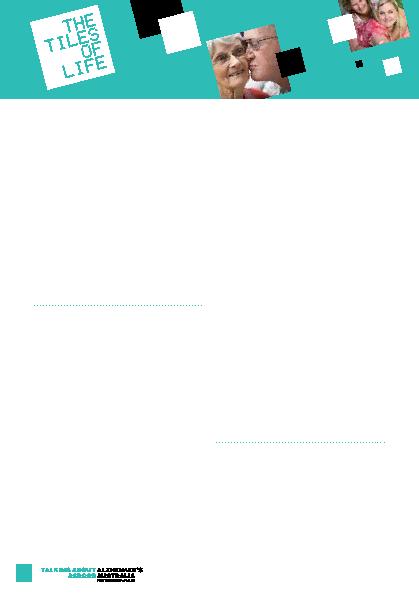
for example through art, gardening, boating,
excursions, life story work and talking about
shared memories with laughter and humour.
Laughter and playfulness enriched interactions
and gave extra energy that helped keep carers
`light' whilst dealing with the `dark' burden of
caring. This shared pleasure created a sense
of intimacy and connection, albeit at times a
momentary flicker of engagement.
only health care professionals understanding
of the humanistic, person-centred and playful
ways of being but also raise awareness,
acceptance and facilitate interactions in the
community to enhance communication with
carers and people with dementia.
Jennifer henderson
Ozcare, Queensland Dementia Training Study
Centre
Service was funded through Home and
Community Care in 2009 to provide direct
client support with face-to-face consultation.
The Advisory component of the service
works in partnership with key stakeholders to
deliver education and training with the goal
to build on the workforce knowledge and skill
in responding to the needs of people living
with dementia, their carers and families.
Therefore the building of sustainability within
the community and the aged care sector is
paramount to achieving these goals.
Queensland Dementia Training Study Centre
dementia education opportunities currently
available to health professionals workin
of Australian and overseas dementia
education and training opportunities
available to health professionals This
`map' has been converted into an online
tool which allows users to search, for
example, by course content, target
audience, course location and delivery
mode. Users are then able to access
detailed information about courses relevant
to their specific dementia education and
training needs.
online dementia resources which can be
accessed via the "Learning Centre" at:
www.dementiasupport.com.au
based map also suggested other related Key
Findings which provide further understanding
of gaps existing within the dementia education
network and therefore this statistical
information could possibly inform future policy
on training.